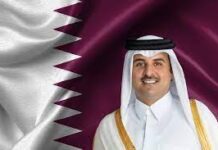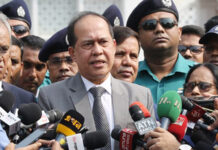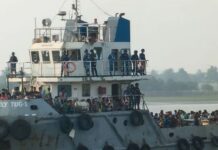Sit in Manila today for action plan; WB sends ACC more evidence of graft
The co-financiers of Padma bridge project would sit today at the Asian Development Bank (ADB) headquarters to decide on a new implementation strategy for having more control over procurement, said finance ministry officials.
Officials of the World Bank, ADB and Japan International Cooperation Agency (Jica) are expected to attend the meeting in Manila. Of them, country directors of the WB and ADB offices in Dhaka have already reached the Philippines, said the officials.
The meeting will decide whether the donors will have full control over the procurement or the project will be implemented under other means to ensure quality work and prevent corruption in the project.
Anti-Corruption Commission (ACC) sources said the WB had submitted its 3rd report on the graft allegations in the bridge project to the ACC in the middle of this month. The WB Dhaka office had directly delivered the report to the ACC chairman.
ACC Chairman Ghulam Rahman yesterday told the media, “According to the information we have received so far from different sources, including the World Bank, we found that there had been a conspiracy to commit corruption…some people tried to take advantage.”
The four-member ACC team formed to investigate the WB allegations of corruption in the project was expected to submit its report on December 3, said Rahman, adding that legal actions against the accused would be taken after the report submission.
The anti-graft commission yesterday interrogated three officials of the Bridges Division and two others in connection with the corruption allegations. The outcome of the interrogation could not be known.
The three Bridges Division officials quizzed are: Senior Assistant Engineer Rajab Ali, Deputy Director (finance and accounts) Moniruzzaman, and former additional chief engineer Md Zafar Ullah.
Prof Abu Siddique of engineering department at Bangladesh University of Engineering and Technology, and Sanowar Ali, a member of National Housing Authority, were also interrogated.
The ACC enquiry began in September last year.
Sources in the ACC said whatever today’s Manila meeting decided would depend on the report of the WB’s external panel and Integrity Vice Presidency (INT) as to whether the investigation into the graft allegations were being carried out fairly.
Luis Moreno Ocampo, chair of the external panel of the WB and former chief prosecutor of the International Criminal Court, along with officials of WB’s INT would start a meeting with the ACC in Dhaka on December 2 to learn about the progress of the graft probe, said ACC officials.
Finance ministry officials said the WB would decide whether to finance the project further and de-link the investigation and implementation process based on the panel’s report on the progress of the ACC investigation.
Sources said the WB INT wanted the ACC to file a First Information Report (FIR) with a police station during the first stage of the anti-graft commission’s investigation.
On October 14, the WB external panel arrived in Dhaka and it was scheduled to give the global lender a primary report within a month. But sources said the report was not prepared, as the FIR was not filed.
About this, an ACC official said they had not filed the FIR due to lack of adequate evidence, but they would file an FIR very soon, as they had got substantial information in the 3rd report of the WB.
In the beginning of this year, the WB had given a report to the government on corruption in the appointment of a consulting firm for the project while another report last year on graft in the main bridge project.
The WB had suspended its credit deal in September last year, raising graft allegation. In June this year, the bank cancelled the agreement saying it had proof of a “corruption conspiracy” involving some Bangladeshi officials, executive of a Canadian firm and some individuals, whose identities remained a mystery.
On September 20, the WB decided to revive the loan imposing four conditions including fair investigation into the corruption allegations.
After the bank had decided to re-engage, the government began hammering the global lender to give a go-ahead for the implementation of the project.
A finance ministry official said the government wanted the Padma bridge work to resume from where it had stopped.
The WB proposed implementation of the project on a turnkey basis under which full control of the procurement would remain with them.
Meanwhile, the ADB proposed forming of a joint taskforce for procurement related works in the project.
Officials said besides the new procurement arrangement, today’s Manila meeting would also discuss various other issues, including the investigation into the graft allegation.
Source: The Daily Star









